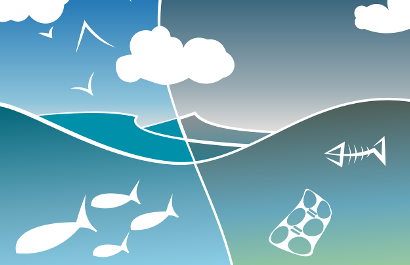
Publication Date: 20/01/2022
Metacommunity dynamics of complex life cycle species in exploited ecosystems
No próximo dia 26 de janeiro terá lugar na Universidade da Madeira (Edifício da Penteada, sala do senado, piso -2) um conjunto de palestras proferidas por investigadores do projeto intitulado “Dinâmica de metacomunidades de espécies com ciclo de vida complexos em ecossistemas explorados (LAPACOM)”.
Trata-se de um projeto aplicado na área científica principal Matemática - Matemática Aplicada, que envolve a Universidade da Madeira, Universidad de Las Palmas de Gran Canaria, Swiss Federal Institute of Aquatic Science and Technology (EAWAG) e Direção Regional do Mar (DRM) e que visa combinar previsões teóricas com dados empíricos de metacomunidades intertidais como um caso de estudo para prever trajetórias futuras em ecossistemas fragmentados e explorados, tendo em consideração a estrutura espacial, ciclos de vida complexos, migração e processos demográficos.
As palestras são abertas ao público em geral, e será facultado aos interessados um Certificado de presença para este conjunto de palestras.
Projeto de I&D financiado por fundos nacionais através da FCT - Fundação para a Ciência e a Tecnologia, I.P. (Refª EXPL/MAT-APL/0262/2021)
Programa/Apresentações orais
16:00 – Apresentação dos Oradores Convidados no âmbito do projeto LAPACOM.
16:10 - “Integração da teoria e dados empíricos”, Dr. Carlos Melián, EAWAG.
16:35 - “O que é código? Porque é interessante?”, Dr. Ali Vadhati, Universidade de Zurique.
17:00 - “Como se distribuem as espécies? O que são metacomunidades?”, Dr. Rodrigo Riera, Universidade de Las Palmas de Gran Canaria.
Oradores
Dr. C. Melián is a scientist at Eawag, ETH-domain, in Switzerland. His lab explores eco-evolutionary dynamics from single- to multiple-species assemblages. He has contributed with novel approaches combining stochastic modelling and empirical data to study the interaction between ecological and evolutionary dynamics in multispecies assemblages. Dr. Melián has collaborated with researchers of a wide range of fields i.e. mathematics, ecology, evolutionary biology, computer science, and conservation biology. His lab aims at the integration of highly heterogeneous data at different biological levels and spatiotemporal scales using mainly stochastic models with a final attempt to unify the fascinating details of biological systems in a general and testable framework.
Dr. A. Vahdati is an evolutionary biologist at the University of Zurich. He finished his PhD in 2017 and since then has been working at the Institute of Anthropology. He has experience with modeling biological systems at different levels, from biomolecules populations and species. His computational tools include agent-based modeling, statistical analysis, and machine learning. Dr. Vahdati wrote the first agent-based modelling framework in the Julia language which is a mature framework by now with several people contributing to its development every month.
Dr. R. Riera (Co-PI of LAPACOM) is currently an Assistant Professor at the University of Las Palmas de Gran Canaria (ULPGC), Canary Is. (Spain). He is interested in the effects of perturbations from human activities on coastal biodiversity (fish, algae, among others). He is also making efforts in integrating biodiversity data on ecological theory based on mathematical codes. Dr. Riera is now launching a research group in the Canary Islands with collaborations with researchers all over the globe (Australia, Sweden, Switzerland, Puerto Rico, Chile, Portugal, etc.). Lastly, he is involved in outreach activities to show Science to the public in general.
Publication Date: 24/04/2025
Applications for Master's degrees 2025/2026Publication Date: 24/04/2025
Open Forum: Linguistics, Societies & Cultures - 4th Arts and Humanities WeekPublication Date: 23/04/2025
Ilha dos Amores, Aqui - Entre sabores e saberes, navega a poesia de CamõesPublication Date: 22/04/2025
VIII International Meeting Cinema & Territory- Call for PapersPublication Date: 21/04/2025
Call for Proposals for Murals - 4th Arts and Humanities WeekPublication Date: 21/04/2025
Executive Masters in Business Administration for non-management Graduates 2025/2026Publication Date: 16/04/2025
Open Lecture: A proposal for reflections on identity in historical novels by João dos Reis GomesPublication Date: 16/04/2025
Publication Date: 22/04/2020
Inauguration Ceremony of the Rector of the University of MadeiraPublication Date: 12/04/2021
Exhibition Journey to the World of CycadsPublication Date: 19/05/2023
Undergraduate Degrees 2022/ 2023 - National Competition for Access and Admission to Higher Education - 3rd PhasePublication Date: 19/07/2022
Conference: Training of Soccer AgentsPublication Date: 31/03/2023
Enrolment for Students placed in the 3rd Call of the National Competition for access to Higher EducationPublication Date: 29/10/2021
Regional Poliempreende 2024Publication Date: 02/04/2024
University of Madeira student wins gold medal at Curitiba 2025 World BOCCIA Youth ChampionshipPublication Date: 04/04/2025

